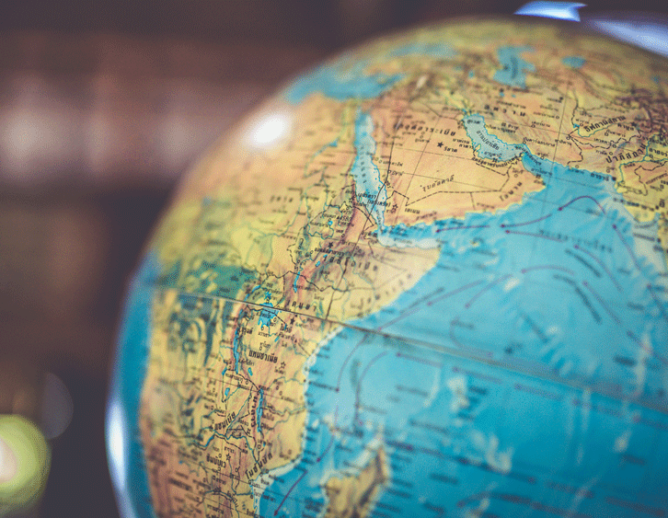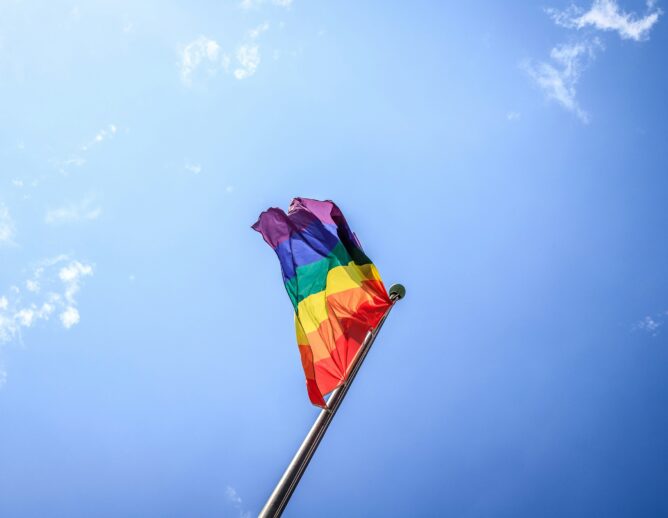
DIALOGUES ON BEING HUMAN: The Intersections of Art, Health and Dignity with artist Wangechi Mutu in dialogue Alicia Ely Yamin, Visiting Professor at Georgetown University Law Center and Director of the Health and Human Rights Initiative.
The second in our series, the Art Dialogues seek to make health and human rights issues more visible and comprehensible. By harnessing the power of art to convey the linkages between being human, living with dignity as a subject of rights, and well-being, this series can provide space to explore inter-disciplinary forms of knowing and sharing the human experience. Too often siloed scholarship in and beyond law is limited to forms of knowledge appealing to self-defined, specialized audiences, which can preclude the intuitive reactions that reveal much about the experience of both enjoyment and violation of rights.

Selected artists share evocative artwork that was often created in response to experiences of exclusion or deprivation, or with the aim of expressing what complex human identity means to them. Bringing together these works of art and the artists who create them in one evening of intimate conversation with a leading human rights scholar, invites further reflection and inter-disciplinary dialogues, with the aim of opening people to different dimensions of questions about the meaning of being human and using rights to create social transformation that advances human dignity and well-being.
Participants will experience Wangechi Mutu’s 9 minute film,“The End of Carrying All” where she plays the main character, and later discuss the themes explored in her artwork, including ideas of desire, gender, race, cultural trauma and environmental destruction.
The film follows a woman’s journey across a landscape, carrying a large basket on her head filled to the brim, as many African women still do on a daily basis to feed their families. With every step, the woman’s basket is increasingly filling up with more goods and manufactured objects, including buildings, a bicycle wheel, a satellite dish, a tower, and an oil rig. Eventually, it feels as though the woman is carrying the burdens of all of humanity, our desires and insatiable materialism. She buckles under the weight, eventually disappearing, as this bulge too becomes re-absorbed into the earth. An eruption follows, rumbling under the earth, erasing any trace of the woman and her toil. All is quiet, and as if nothing had ever happened, the whole journey begins again. Mutu says, “My films provide a way for me to enact, represent, what I empathize and value about women. In performing, I’m present, I’m there, alive and captured in time and movement.”
Wangechi recasts female stereotypes, and questions cultural identity and perceptions. Her work touches on the complications of being, and how the physical body plays a significant role in determining experiences, survival, and the ability to understand what that is. Mutu believes, “ Art allows you to imbue the truth with a sort of magic…so it infiltrates the psyches of more people, including those who don’t believe the same things as you”.
Mutu’s collage-paintings, sculpture, installation, film work and performance works are centered on imagery of the female body underscoring how it can act as measuring devices of any society’s well being. She observes, “Females carry the marks, language and nuances of their culture more than the male. Anything that is desired or despised is always placed on the female body”.
Mutu’s work gives viewers an immediate and intimate personal insight into important themes, that words cannot express. She is one of the most widely acclaimed African-born Contemporary artists. Born in Nairobi, Kenya, she lives and works both in New York and Nairobi. Her own diverse history –she has studied both anthropology and sculpture and has also lived in Wales–has given her a unique cross-cultural perspective that informs her work. Wangechi holds an MFA from Yale, and her work has been exhibited in a host of major institutions and museums worldwide.
We are very excited to welcome Wangechi Mutu on November 8th and to collaborate across disciplines with the Art and Art History Department, and co sponsored by the School of Foreign Service and the Office of the Provost.

Wangechi Mutu, stills from The End of carrying All, 2015 –3 Screen Animated Video (color, sound) 9 minutes 27 seconds loop, Edition of 3. Courtesy of the Artist, Gladstone Gallery New York and Brussels, Susanne Vietmetter Los Angeles Projects, and Victoria Miro London.



